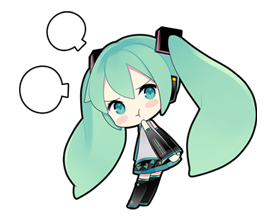Definition
- Your ability to see your will made manifest in the world.
Explanation
- If you want to do something, how easy is it for you to do it. To naively put this in informatics terms, you could think of it as the weight associated with a person’s node in a network.
- Because we live in a world of systems (political, legal, cultural, organisational, social), a lot of that is tied up in how those system are designed. And a lot of that is dependent on who they were designed for, or by. Because, intentionally or unintentionally, people tend to design things for people like them.
Traits of Power
- It doesn’t have to be explicit. In common usage we talk about powerful people as those with particular positions or titles, but this kind of clearly named power is only really a small subset and shouldn’t be confused for the wider concept.
- Power does not have to be wielded intentionally. The powerful do not need to be vindictive to harm those with less power. Whenever their goals are at odds, the less powerful are more likely to lose out.
- It isn’t a single axis. Someone can have power in some interactions and very little in others. But it is certainly correlated. There are some people and groups with power in a lot of different ways, and by the nature of power it tends to let you more easily accrue more power.
- Power also doesn’t have to be active at all. As in, someone doesn’t have to be doing something to or with another person for the power dynamic to come into play. A system can just be set up such that one of them has an easier time moving through it than the other. Like they’re travelling two different roads, but one of those roads is well tended and the other is filled with potholes. In some places, this isn’t even an analogy.
- This can be thought of as what people are talking about when they talk about Privilege. Privileged groups are the ones by or for whom society’s systems have historically been designed, and as a result people in those groups tend to hold more power.
Power in Tech
What we produce are tools of Power, in one of maybe three ways:
- First is amplifying the ability to do something (reduced costs, increased scale, increased reach).
- This is a multiplicative effect on existing power, because people who already had superior capacity to do something will be able to take advantage of the scaling more. For example, the use of robots in factories speeds up or reduces the cost of production, but the larger your factory operation the more able you are to benefit from this. So small scale producers, or indeed the people working in those factories, have little to no chance of benefiting.
- Second is entrenching the power in existing systems by taking them from something informal, administered by humans who can understand nuance, adapt to different circumstances, and be questioned, to something rigid enshrined in rules, administered by unassailable machines.
- We see this in the COMPAS case study, where the part of the decision being made by the algorithm isn’t transparent to the judge or to the accused, so even if it was making similar decisions to a human in the same role, there is no opportunity to dispute or appeal.
- Third is providing a new capability that wasn’t available before at all.
- This is maybe just a special case of number one. But something like DeepFakes, which are starting to allow convincing footage or audio of people to be created without their involvement, might only allow this to be done by the people with large compute capacity and plentiful training data (or the ability to acquire these things).
It is worth noting that these aspects are also the reasons for the great potential of technology. Being able to make these kinds of impacts can drastically improve people’s lives, by redressing existing power imbalances.
The internet, while is has ended up coming with many of its own problems, has given regular people in much of the world access to information and to each other on an unprecedented scale, enabling things like mass organisation of regime-ending protests.
Prosthetics can give physical freedom to people who have been denied it.
The automation of factories that may culminate in those job-stealing robots has, for now, made the people who still work there generally much safer.
What we have more control over are the multitude of other interactions in our work where we hold some power or privilege over other people who might be affected by the artifacts we produce, as well as making sure that those artifacts are not further unfairly taking power away from people.
Translate + Edit: YangSier (Homepage)
:four_leaf_clover:碎碎念:four_leaf_clover:
Hello米娜桑,这里是英国留学中的杨丝儿。我的博客的关键词集中在编程、算法、机器人、人工智能、数学等等,点个关注吧,持续高质量输出中。
:cherry_blossom:唠嗑QQ群:兔叽的魔术工房 (942848525)
:star:B站账号:白拾Official(活跃于知识区和动画区)








